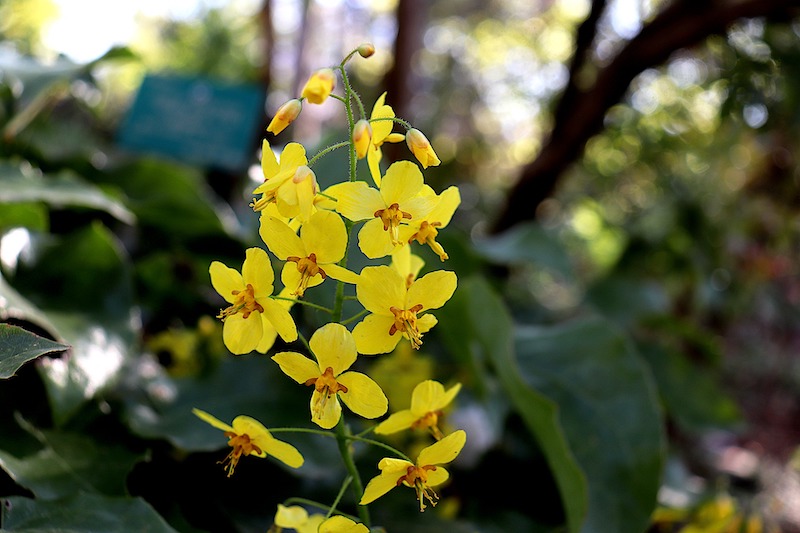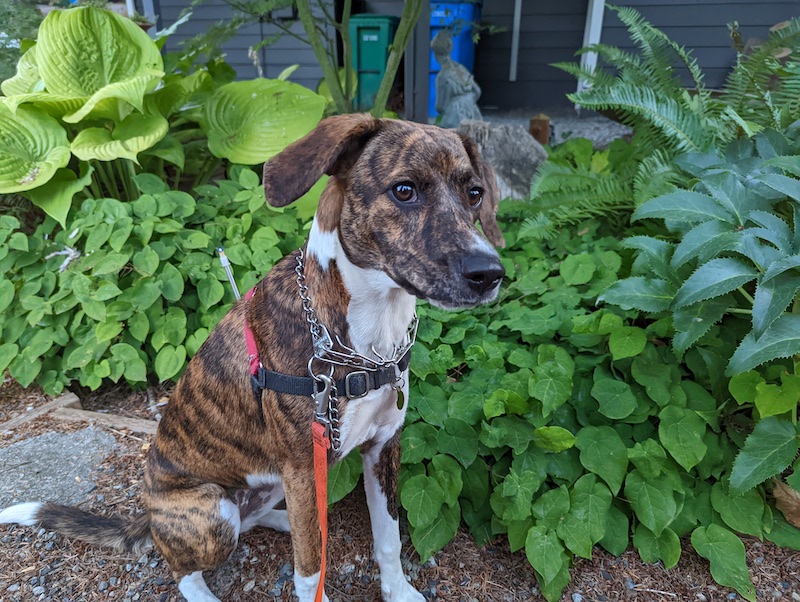Nearly all plants have some level of toxicity – it’s a natural adaptation that supports their survival. The good news is Barrenwort (Epimedium) is considered safe and has no known reported toxicity to birds, cats, dogs, horses, livestock, or people. However, we don’t recommend regular consumption of this beautiful shade-loving perennial; rather, enjoy its aesthetic benefits in your garden.

Are Barrenwort Poisonous to Children?
Young children are naturally curious while exploring the world around them. As with all steps to baby-proof your home, your garden and proper placement of houseplants should be included in this process. Learn about the plants in your landscape and consider removing them entirely or place them out of reach if they have any risk of toxicity to children. Teach children not to put any part of a plant in their mouths, including leaves, stems, flowers, nuts, seeds, berries, bulbs, or bark.
Are Barrenwort Poisonous to Dogs?
Barrenwort is considered non-toxic and pet safe, but if you notice your dog is either eating or digging up your plant, try using a non-toxic, natural bitter anti-chew spray to make the smell and taste of the plant undesirable.

Are Barrenwort Poisonous to Cats?
Cats are well-known plant nibblers, but Barrenwort is considered non-toxic and safe if ingested by cats. Cats in general, don’t like the smell of citrus, so if your cat enjoys nibbling on garden or houseplants, make them unappealing. Mix the juice of a lemon, lime, or orange in a spray bottle with water and spray the leaves to deter chewing.
Are Barrenwort Poisonous to Other Animals?
Barrenwort has no reported toxicity to animals, including browsing deer. Deer tend to avoid strong-smelling herbs and they don’t particularly enjoy fuzzy-leaved plants, so if you are concerned about animals eating your Barrenwort, consider utilizing strong-smelling but ornamental herbs and plants such as dill, sage, chives, borage, mountain mint, lavender or lambs ear. You can intersperse these fragrant and attractive plants around existing perennials to help keep curious and hungry animals at bay.
Symptoms Of Barrenwort Poisoning
Always check with your doctor or veterinarian for immediate guidance if you suspect Barrenwort poisoning. If consumed in large quantities or over a long period of time, here are some symptoms to look for:
- Breathing Difficulties
- Upset stomach / Vomiting
- Diarrhea
Stay on the safe side and avoid ingesting Barrenwort, particularly if you are pregnant, breastfeeding, or have serious underlying health issues.
Preventing Barrenwort Poisoning
Because Barrenwort isn’t known to be toxic to either humans or animals and it provides a lovely groundcover for shady spots in the garden, consider utilizing this plant in these areas versus a more toxic groundcover perennial such as lily of the valley. That way, you know your two and four-legged friends remain safe.
Pet Poison Helpline
If something were to happen to your furry friend, and you suspect that they are suffering from Barrenwort poisoning, there is a poison control hotline to call for 24/7 vet advice. It is called the Pet Poison Hotline, and their phone number is (855) 764-7661.
Sources:
"Epimedium." The North Carolina Extension Gardener Plant Toolbox. plants.ces.ncsu.edu
"Epimedium: Purported Benefits, Side Effects & More." Memorial Sloan Kettering Cancer Center. mskcc.org
 |
Author Chris Link - Published 01-12-2023 |
